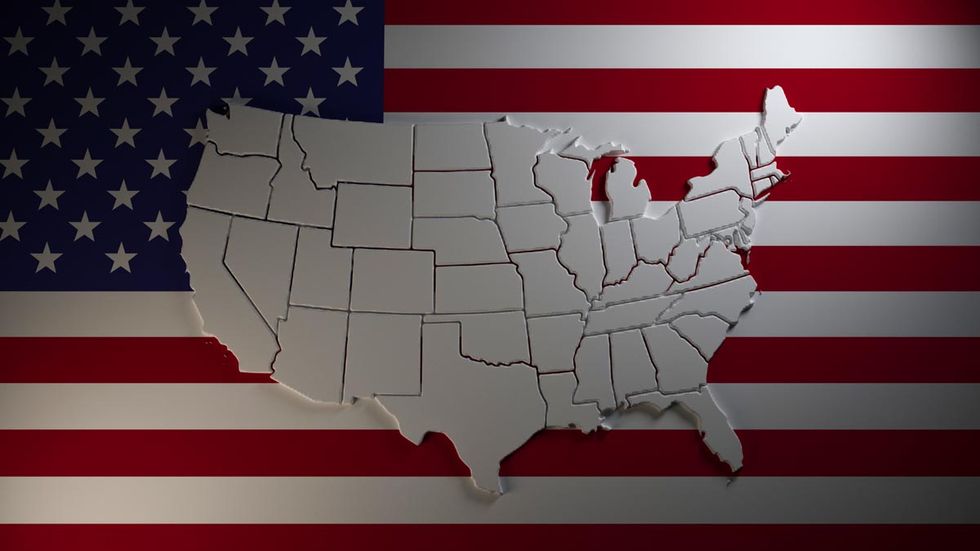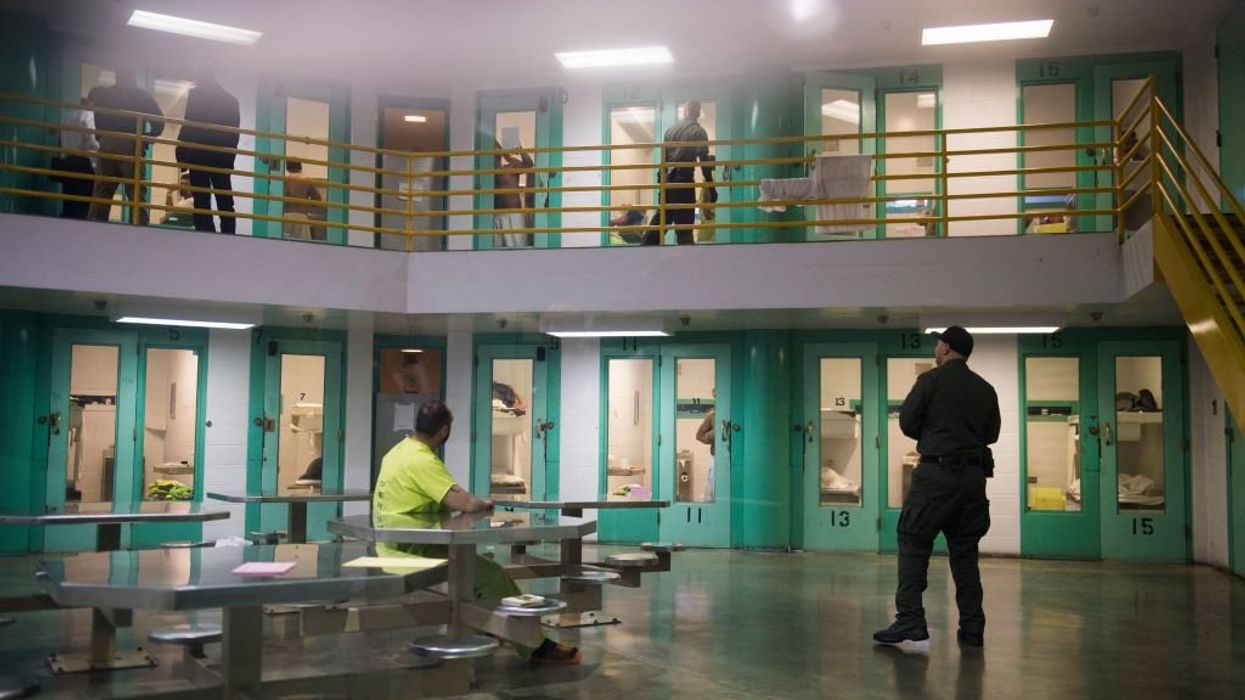
© 2024 Blaze Media LLC. All rights reserved.
Liberals finally support travel bans. No, not when the president uses his lawful power over foreign affairs and commerce to ban foreign nationals from dangerous countries, such as Iran or China, from immigrating here. Liberal governors are now illegally implementing travel bans on their own citizens from state to state. Welcome to the Articles of Confederation government, unless, of course, you’re a foreign national seeking entry to get on welfare. Then a court will defend your “right” to travel and immigrate to the U.S.
Truth be told, even when states were super-sovereigns, during time of the Articles of Confederation, they did not ban Americans from traveling from state to state, because that was recognized as a fundamental liberty interest that even King George didn’t try to stop. Even as states were free to regulate interstate commerce from 1776 to 1789, Art. IV of the Articles of Confederation unambiguously recognized the right of Americans to travel freely from state to state: “The free inhabitants of each of these states … shall be entitled to all privileges and immunities of free citizens in the several states; and the people of each state shall have free ingress and regress to and from any other state.”
But now, governors like “Lockdown Larry” Hogan of Maryland have illegally barred residents from traveling out of state. You heard that correctly. While these governors and some wayward federal judges opposed a travel ban on foreign nationals from terrorist countries or those who would become a public charge, when there is no right for foreigners to immigrate, they are now implementing a travel ban on their own countrymen.
WBAL TV reports that a spokesman for Governor Hogan said that vacation is not allowed under the governor's stay-home order, which would bar people from traveling to another state unless they are exempted from the order.
Thus, Hogan has now declared an edict that was never in effect for a single day in the history of the American settlement on this continent, under any governing body. Sadly, and ironically, Maryland was the first state to recognize personal liberty and freedom of movement in an act of the governing body in 1639 – well over 100 years before the Revolution.
The natural right of freedom to travel without restraint that was even enumerated in the Articles of Confederation was codified in Art. IV Sec. 2 of the Constitution, using similar language: The citizens of each state shall be entitled to all privileges and immunities of citizens in the several states. As Clarence Thomas has eloquently written in numerous cases over the years, the 14th Amendment’s Privileges and Immunities Clause granted the federal government authority to enforce this right when states infringe upon it.
As recently as 1999, the Supreme Court said in plain English that the “‘constitutional right to travel from one State to another’ is firmly embedded in our jurisprudence” (Saenz v. Rose). Citing previous case law, the court ruled that the right to travel freely is "assertable against private interference as well as governmental action ... a virtually unconditional personal right, guaranteed by the Constitution to us all."
All nine justices agreed that this right is unquestionably protected by the privileges and immunities referenced in Art. IV Sec. 2 and the 14th Amendment. It is the very same language referenced in Maryland’s “Act of the Liberties of the People” of 1639, believed to be the first Bill of Rights.
How far back does this jurisprudence go? In Crandall v. Nevada (1868), the Supreme Court ruled unanimously, based on the 1849 Passenger Cases involving state taxes at harbors, that a state couldn’t even inhibit people from traveling outside by taxing them, much less by threat of criminal prosecution, as today’s governors are doing.
“For all the great purposes for which the Federal government was formed we are one people, with one common country,” wrote Justice Samuel Miller for the unanimous opinion. “We are all citizens of the United States, and as members of the same community must have the right to pass and repass through every part of it without interruption, as freely as in our own States. And a tax imposed by a State, for entering its territories or harbors, is inconsistent with the rights which belong to citizens of other States as members of the Union, and with the objects which that Union was intended to attain. Such a power in the States could produce nothing but discord and mutual irritation, and they very clearly do not possess it.'”
What about exceptions to this right? There are none. Justice Robert Jackson made it clear in his concurrence in Edwards v. California (1941), a case involving a California law barring indigent citizens from entering, that unless someone is a fugitive of law, there are no limitations on interstate travel: "It is a privilege of citizenship of the United States, protected from state abridgment, to enter any State of the Union, either for temporary sojourn or for the establishment of permanent residence therein and for gaining resultant citizenship thereof. If national citizenship means less than this, it means nothing."
Justice Jackson is the one who famously observed that aside from habeas corpus during a rebellion or invasion, the Founders “made no express provision for exercise of extraordinary authority because of a crisis.” There are no exceptions to the constitutional prohibition on taking fundamental rights without due process.
This principle is firmly established, ironically, in Governor Hogan’s own state constitution, more eloquently and emphatically than in perhaps any other state’s constitution. Art. 44 of Maryland’s Declaration of Rights emphatically declares “that the provisions of the Constitution of the United States, and of this State, apply, as well in time of war, as in time of peace.”
Yet it appears Mr. Hogan has swapped our constitution with that of the Weimer Republic, which empowered the government “to suspend any or all individual rights if public safety and order were seriously disturbed or endangered.” As Justice Jackson warned in the Youngstown case, we all know the rest of that story. He certainly did, because he served as the lead prosecutor unearthing the results of that fatal mistake of giving executives unqualified authority under the guise of “public safety.”
Want to leave a tip?
We answer to you. Help keep our content free of advertisers and big tech censorship by leaving a tip today.
Want to join the conversation?
Already a subscriber?
Blaze Podcast Host
Daniel Horowitz is the host of “Conservative Review with Daniel Horowitz” and a senior editor for Blaze News.
RMConservative
Daniel Horowitz
Blaze Podcast Host
Daniel Horowitz is the host of “Conservative Review with Daniel Horowitz” and a senior editor for Blaze News. He writes on the most decisive battleground issues of our times, including the theft of American sovereignty through illegal immigration, theft of American liberty through tyranny, and theft of American law and order through criminal justice “reform.”
@RMConservative →more stories
Sign up for the Blaze newsletter
By signing up, you agree to our Privacy Policy and Terms of Use, and agree to receive content that may sometimes include advertisements. You may opt out at any time.
© 2024 Blaze Media LLC. All rights reserved.
Get the stories that matter most delivered directly to your inbox.
By signing up, you agree to our Privacy Policy and Terms of Use, and agree to receive content that may sometimes include advertisements. You may opt out at any time.



